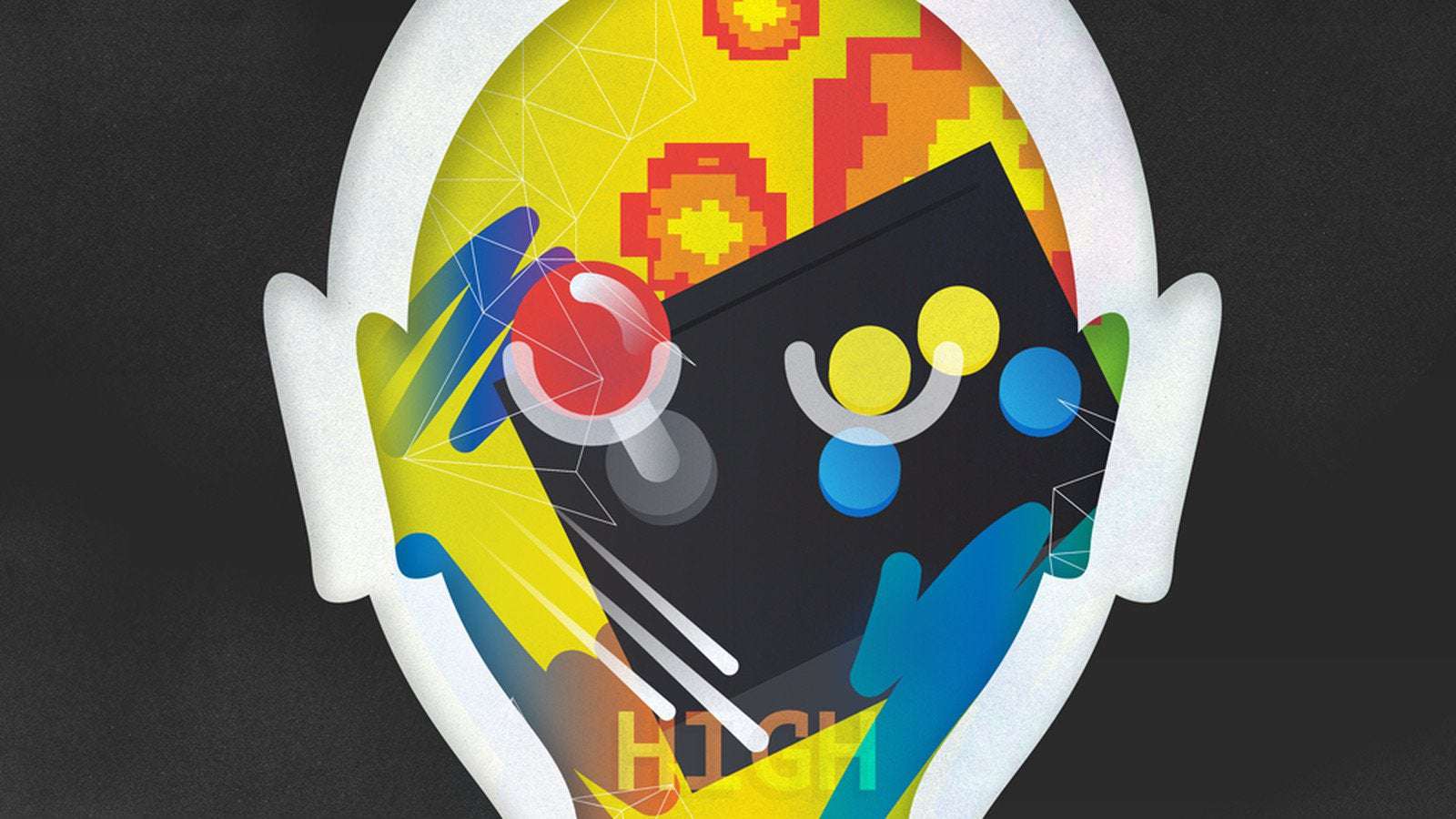Maybe you're meandering, alone and lost, through an abandoned castle surrounded by a crocodile-filled moat. Suddenly, a flame-breathing dragon hurls towards you, snarling and gnashing its teeth, coming in for the kill. Do you wake up from this bizarro nightmare, covered in sweat and close to tears? Or do you stay in the dream, grab your imaginary sword, and walk boldly into battle?
If your answer is the latter, then Jayne Gackenbach would suspect you're also a hardcore gamer.
Gackenbach is a psychologist at Canada's Grant MacEwan University and arguably the world's preeminent expert on how video games can impact dreaming. In the early 1990's, her son Teace (with whom Gackenback later co-authored a book on gaming) started playing Nintendo, and Gackenbach found herself fascinated with the potential impacts of her son's new hobby. Namely, the various ways in which hardcore gameplay — characterized in part by regular playing sessions of more than 2 hours, several times a week, since before the third grade — seem to transform the nighttime imaginings of study participants who fit that profile. Those transformations, Gackenbach says, also offer insights into how video gaming might shape an individual's experiences in the waking world.
"A biological construct or a technological one."
"The major parallel between gaming and dreaming is that, in both instances, you're in an alternate reality, whether a biological construct or a technological one," she says. "It's interesting to think about how these alternate realities translate to waking consciousness, when you are actually reacting to inputs from the real world."
In her most recent paper, published in the latest issue of Dreaming, Gackenbach and her colleagues further solidified a key earlier finding: that so-called "hardcore" gamers were more likely than their peers to experience lucid dreams. Gackenbach first reached that conclusion in 2006, after noting that gamers and lucid dreamers both displayed traits like intense focus and superior spatial awareness in their waking lives. Indeed, when she surveyed 125 gamers and non-gamers on the frequency with which they experienced lucid dreams, Gackenbach found a strong association between the two.
Able to toggle between first and third-person point-of-view
She's since honed that preliminary finding with subsequent studies, and also found that during lucid dreams, gamers had control only over themselves as a character. But, much like in a game, they were also able to toggle between first and third-person point-of-view. "Gamers already know what it's like to be in control in an alternate reality," she says of the finding. "So it makes sense that a gamer would notice, ‘hey, I'm in a dream,' and know how to manipulate that situation."
And Gackenbach's findings don't stop at lucid dreaming. She's also noted in other studies that some heavy gamers seem to be non-plussed by dreams that would qualify as nightmares — namely, those that present frightening or threatening situations. In fact, gamers seem to readily take control over (and even enjoy) such unpleasant nighttime illusions. In other words, while a non-gaming person might wake up in a cold sweat, a gamer would simply carry on with their slumber. That said, the finding has largely applied solely to male gamers, a facet that Gackenbach is still unraveling, but suspects is related to either the male-centric social environment of gaming, or to how women are socialized more generally. "At least for male gamers, gaming seems to be sort of protective against nightmares," Gackenbach says, "and that can largely be seen as a good thing, the threat is less upsetting, and doesn't wake you up."
In a broader context, that protective effect might also help gamers navigate threats in waking life: one theory, first postulated by psychologist Antti Revonsuo, suggests that nightmares are an evolutionary mechanism meant to "train" us to deal with threats in a safe environment before we encounter them in real life. If gaming can help people feel protected during that training, it might also bolster them during their waking hours. "If you look at how this might affect, say, military personnel, then it could have significant benefits," says Gackenbach, who has done one study on such a population in the context of wartime trauma. "Maybe games can actually remove the ‘need' for nightmares and the threatening feelings that come with them."
Among her other findings, Gackenbach has noted that gamers tend to have more "bizarre" dreams — those that include far-fetched or impossible scenarios, like imaginary characters or space travel — than their peers. Bizarre dreams, in turn, have also been linked to enhanced creative output in day-to-day life, suggesting (as Gackenbach has also found) that gaming might make us more creative in real-world scenarios.
Researchers can't observe an actual dream
The findings are fascinating, but much like any research into dreaming, they're also somewhat limited: since researchers can't observe an actual dream, they rely on self-reporting from participants. But assuming that Gackenbach's findings genuinely reflect the dream experiences of gamers, she suspects these effects are likely to become even more pronounced as gaming systems like Oculus Rift offer users more immersive experiences.
Now, Gackenbach and others are exploring that realm in conjunction with the growing use of digital devices more broadly - and their introduction to younger and younger populations. "We're introducing kids to immersive realities earlier and earlier; toddlers are disappointed by a magazine because it doesn't work like an iPad," she says. "How does that change their dreaming behavior? I don't know if I'm nervous about finding out, or really excited."

JTCMuehlenkamp on December 15th, 2020 at 02:56 UTC »
Goddammit, are you telling me that I started gaming too late in life for this to happen to me? All I get are boring old regular dreams? That's some fucking bullshit right there.
MuthaPlucka on December 15th, 2020 at 01:16 UTC »
I used to dream de_dust rounds. CS 1.6
lemmiewinxs on December 15th, 2020 at 01:11 UTC »
Lol. I game and one time had a dream where I walked around grading the graphics of it and the textures.